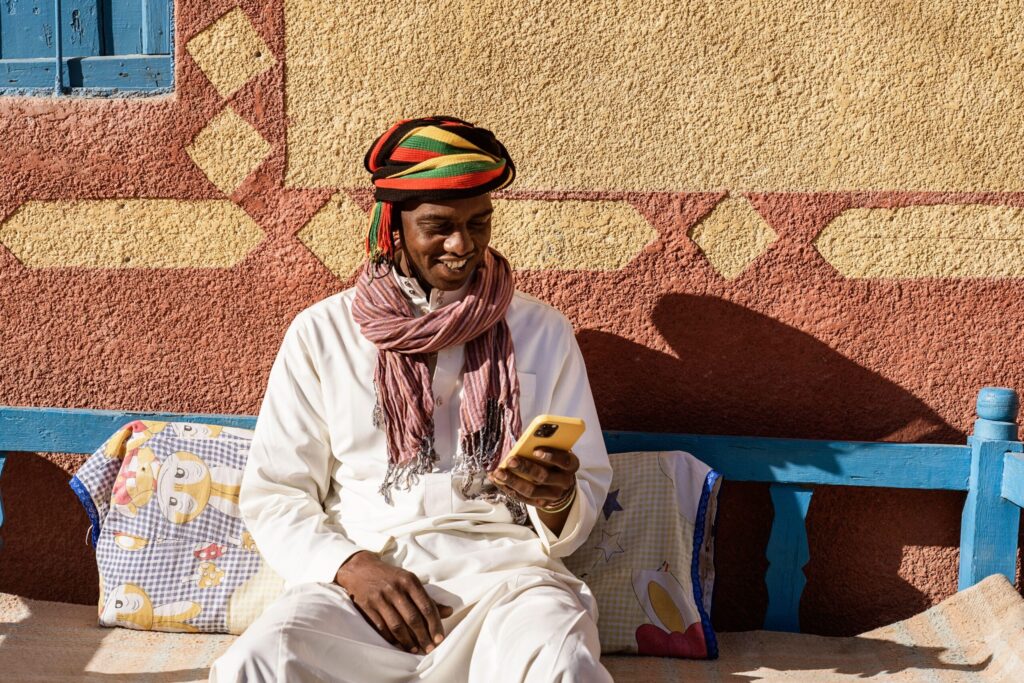Cairo-based startup
Mobile app banking success
$1.3 bn loan book
Egypt’s population is well over 100 million and, while famously entrepreneurial, is often unbanked or financially excluded. For investors, the loans market has long been seen as the Middle East’s financial holy grail – alluring, but ultimately unattainable.
App-based lender MNT-Halan, though, may be the first to be able to say it has cracked the code.
In Egypt alone, MNT-Halan now has a gross loan book of over $700 million – more than most conventional Egyptian banks, MNT Halan’s CEO and co-founder, Mounir Nakhla, tells AGBI.
The app offers microfinancing, SME lending, small vehicle loans, buy-now-pay-later services and more through one central app.
Across all its operations, which include a major subsidiary in Turkey as well as smaller operations in the UAE and Pakistan, the company has a gross loan book worth $1.3 billion – not bad for a business which is less than 10 years old.
Last year, MNT-Halan raised $157.5 million to support expansion, backed by Chimera Abu Dhabi, a private investment company. Chimera’s purchase of a 20 percent stake in 2023 for $200 million meant that MNT Halan became one of three of Egypt’s tech companies to be valued at more than $1 billion.
Founded as a ride-hailing app in 2017 – Halan means “now” in Egyptian Arabic – the business pivoted with an injection of funding by MNT Investments of the Netherlands, a specialist in micro-lending.
From 2021 to 2024, MNT-Halan has grown annually by a quarter, with revenue “reaching hundreds of millions of US dollars”, according to Nakhla.
The fact that around a quarter of Egyptians do not have a bank account, combined with deep mobile telephone penetration, makes for “fertile ground” for app-based financial services, Nakhla says.
Since inception, MNT-Halan has disbursed over $12 billion in loans, 54 percent of which went to women and 41 percent to people aged under 35. In 2024 alone, it lent over $2.2 billion.
The company generates roughly 59 percent of its income in Egypt, 40 percent in Turkey and the remainder in its operations in Pakistan and the UAE, Nakhla explains.
“MNT-Halan’s growth has been enabled by a combination of market need, regulatory support and mobile-first infrastructure,” Nakhla says.
Profiting from lending to unbanked populations is notoriously difficult. Many lenders – some with millions of customers on their books – have entered and left the Egyptian market without being able to justify continuing their operations.
Thanks to its focus on mobile apps, “MNT-Halan has achieved widespread adoption, even in rural and remote areas,” he says.
Still, assessing unbanked populations and businesses for their credit quality can be a challenge. MNT-Halan usually uses data like credit history and businesses’ revenue projections. Where applicants do not have formal credit histories, it uses alternative data to make assessments, such as transaction history on its platform.
MNT-Halan’s most recent corporate bond issuance received the investment grade BBB+ rating.
Egypt’s Vision 2030 push to prop up fintech as a means to bolster financial inclusion has also helped the company grow.
Nakhla says that Egypt’s Financial Regulatory Authority and central bank have shown strong support for financial innovation, granting the company licences to operate across various lending categories.
As a veteran of the lending business before MNT-Halan, Nakhla chose to prioritise loans even while others in the sector saw the business line as an add-on.
“Unlike many digital finance entrants who started with payments, MNT-Halan began with lending, a technically complex business,” says the CEO, adding that his experiences running other lenders were instrumental to MNT-Halan’s success.
While lending remains the foundation, MNT-Halan is today building a finance super-app, offering digital payments, investment products, savings and e-commerce services. It recently launched physical cards with debit, credit and prepaid services.
These complementary services now “contribute significantly to the company’s revenue streams,” says Nakhla.



